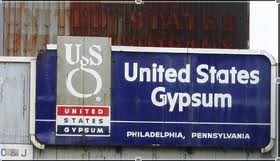Hill & Knowlton, which became Hill+Knowlton Strategies in 2011,
 In the 1980s Hill & Knowlton gave client US Gypsum, which was being sued for installing asbestos in public buildings in Baltimore, advice about how to deal with the media. Its strategy included planting stories on the op-ed pages of newspapers which were written “by experts sympathetic to the company’s point of view” as well as news articles about how safe asbestos was. A company memo following publication of such articles in the Detroit News says “Our consultant, Jack Kinney, very actively fed much of this information to the special writer, Michael Bennet.”
In the 1980s Hill & Knowlton gave client US Gypsum, which was being sued for installing asbestos in public buildings in Baltimore, advice about how to deal with the media. Its strategy included planting stories on the op-ed pages of newspapers which were written “by experts sympathetic to the company’s point of view” as well as news articles about how safe asbestos was. A company memo following publication of such articles in the Detroit News says “Our consultant, Jack Kinney, very actively fed much of this information to the special writer, Michael Bennet.”
Additionally Hill & Knowlton advised Gypsum to set up an industry group to field media inquiries, so that Gypsum wouldn’t be immediately associated with media statements and criticism. It suggested that by enlisting ‘independent experts’ the issue of asbestos, instead of being a public health problem, could be redefined as “a side issue that is being seized on by special interests and those out to further their own causes... The media and other audiences important to U.S. Gypsum should ideally say, ‘Why is all this furor being raised about this product? We have a non-story here’.”
Hill and Knowlton helped Monsanto get approval in the US and Canada for recombinant bovine growth hormone (rBGH), a genetically engineered hormone, to be used to increase the milk yield from cows. It also helped Monsanto defeat measures to label milk produced in this way.